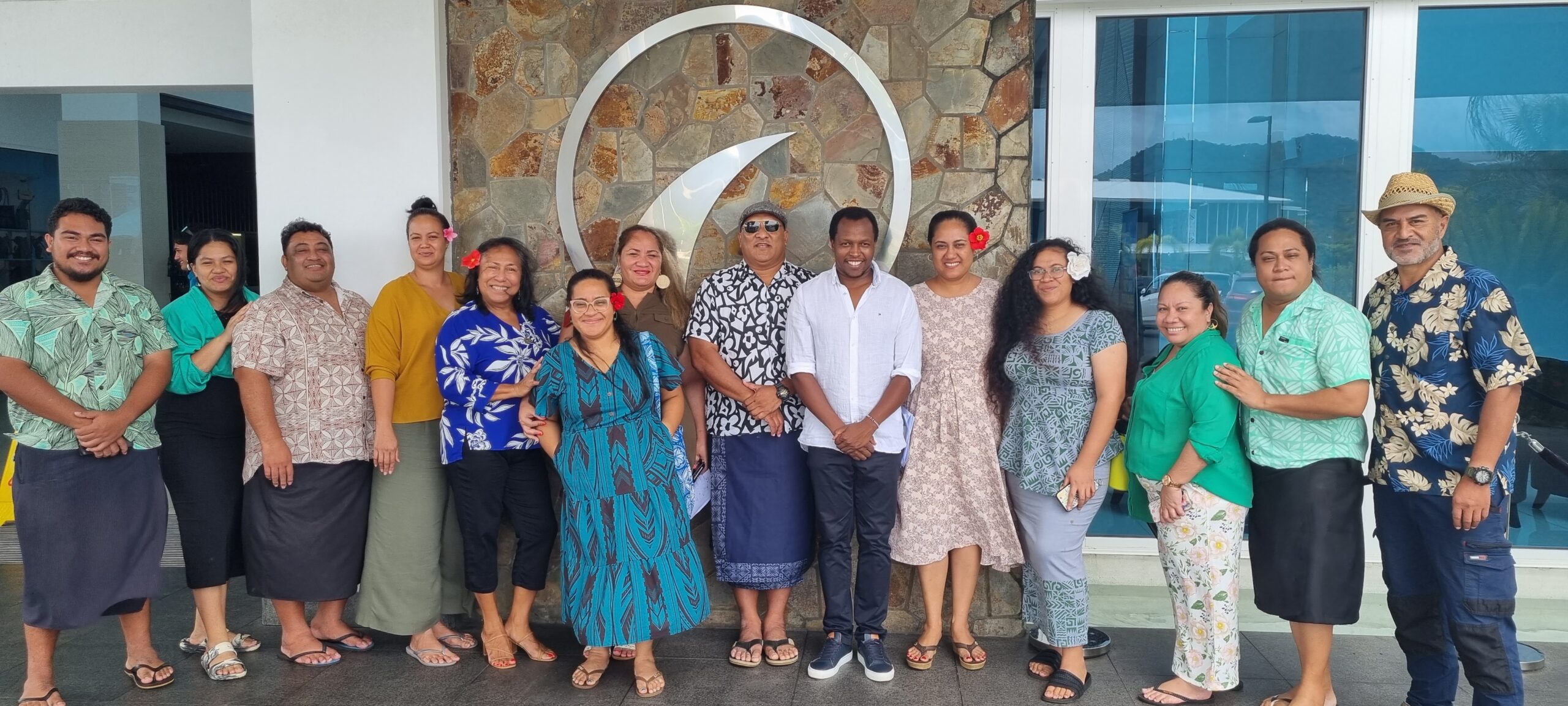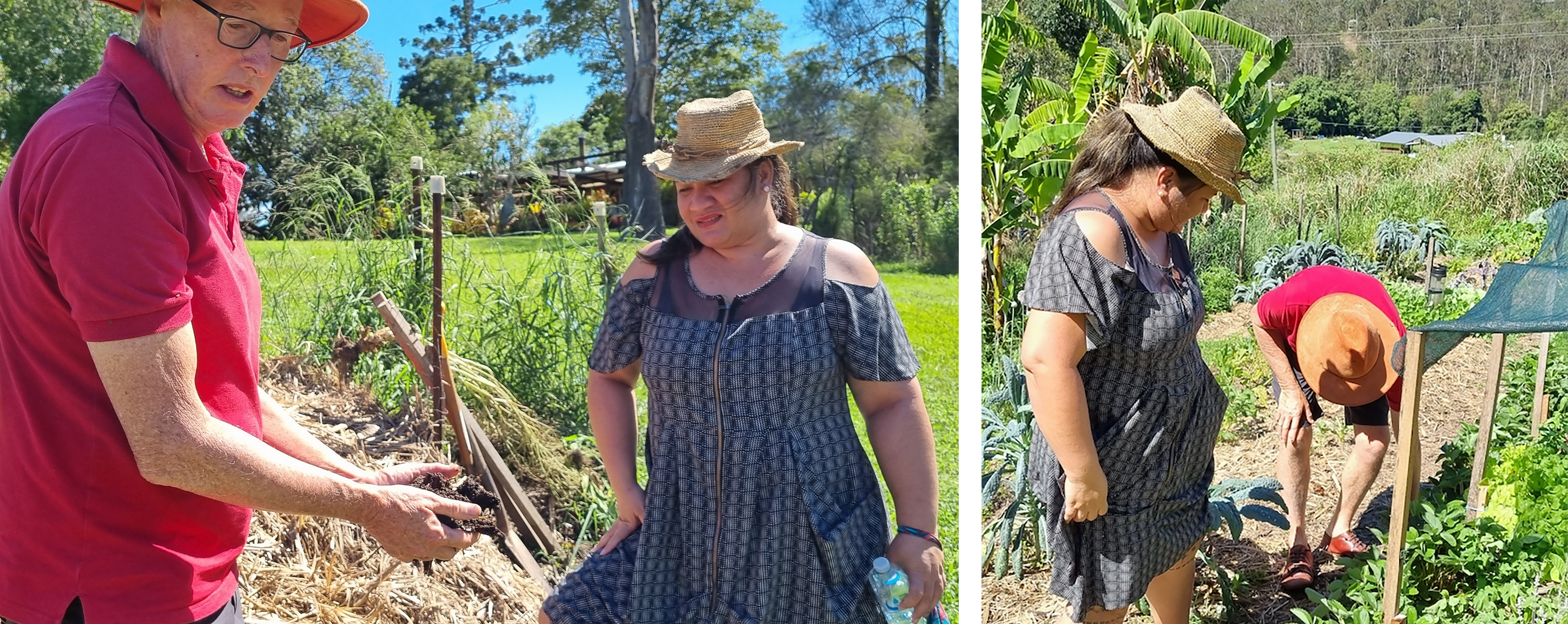

Digital bridges: enhancing agricultural marketing for Samoan farmers
December 12, 2024
The Crawford Fund QLD Committee supports targeted training and mentoring of overseas scientists and extension officers by experienced Queensland counterparts working on similar agricultural research challenges through their International Engagement Awards.
Applications for the 2025 awards close on 28 February 2025. All the details are available here.
In 2023 three awards were announced, including one for Dr Joseph Macharia from the Queensland University of Technology to provide hands-on online marketing training and technology engagement for a trainee from Samoa in Brisbane, and to conduct workshops in Samoa.

Joseph’s project aimed to provide hands-on online marketing training and technology engagement for a trainee from Samoa in Brisbane and to conduct workshops in Samoa.
“The project was conceived in response to calls for agricultural digitisation in Samoa, recognising that Samoan smallholder farmers were underutilising online marketing channels due to a lack of necessary skills,” said Joseph.
The project involved two phases. In the first phase, a trainee from Samoa, Ofusina, visited Brisbane. Ofusina visited various farmers and interacted with Prof Shane Mathews of QUT to learn about marketing products and services. This experience gave Ofusina valuable insights into digital integration in agricultural marketing, which could be applied to the Samoan context. The second phase was a workshop in Apia, Samoa. This workshop, involving Samoan farmers, commerce and agriculture officials, and e-commerce representatives, was a gratifying experience.
Using Talanoa discussions, the participants shared their experiences with mobile-based marketing platforms in Samoa. While acknowledging that some progress has been made, there was consensus that much more needs to be done, particularly in Samoa, where most citizens live in the diaspora.
“The goal was to enhance these farmers’ marketing and entrepreneurial abilities, focusing on mobile technology-based marketing, industry-specialist resources, and best practices from Queensland and other parts of the world. The initiative encourages sustainable and profitable farming practices and promotes commercial engagement between Samoa and Queensland,” he said.
Given agriculture’s significance in Samoa for food security, trade, income generation, and resource management, the successful deployment of this program could provide substantial economic benefits. International engagement is critical in agricultural development and digitisation.
“My experiences in Africa and Australia, where I completed my PhD and currently work, provided invaluable insights that I now share with the Asia-Pacific region, fostering a global exchange of knowledge and best practices,” Joseph noted.

Smallholder farmers in Samoa, like many globally, have historically been marginalised from the digital economy, particularly in utilising online marketing channels. This gap not only hinders their ability to maximise the economic potential of their produce but also limits their access to market information, best practices, and opportunities for scaling and integration into broader market ecosystems. By equipping Samoan farmers with the necessary skills and tools to leverage mobile technology for marketing and entrepreneurship, the project aims to bridge this gap and open new avenues for economic resilience explained Joseph.
“The significance of this project lies in its potential to transform the agricultural sector in Samoa by integrating it into the digital economy. This transformation could lead to increased income generation for smallholder farmers, improved food security, and greater resilience in economic and environmental challenges,” he said.
Furthermore, he argues, the project could serve as a model for similar initiatives in other contexts, highlighting the role of digital technology in revitalising traditional sectors like agriculture. The initiative represents a forward-thinking approach to addressing the challenges faced by smallholder farmers in Samoa. Its success could have far-reaching implications for the agricultural sector in Samoa, the broader Pacific region, and similar economies worldwide.
“This cross-continental collaboration underscores the significance of learning from each In Australia, the emphasis on advanced agricultural technologies and sustainable farming practices has set a benchmark for global standards. Integrating digital tools in agriculture has revolutionised the industry, offering new avenues for market access and efficiency,” he said.
Joseph’s engagement in Africa with the Mkulima Young initiative, an online marketplace for smallholder farmers in East Africa, demonstrated the transformative power of mobile technology in bridging the gap between local farmers and broader markets. These experiences have shaped his understanding of the potential for digital tools to enhance agricultural productivity and sustainability.
“This project warrants close attention and support from the international community, policymakers, and the academic world, as it embodies the intersection of entrepreneurship, technology, and sustainable development. The exchange of knowledge and practices across continents is crucial in driving global agricultural resilience and prosperity,” he concluded.




 0
0